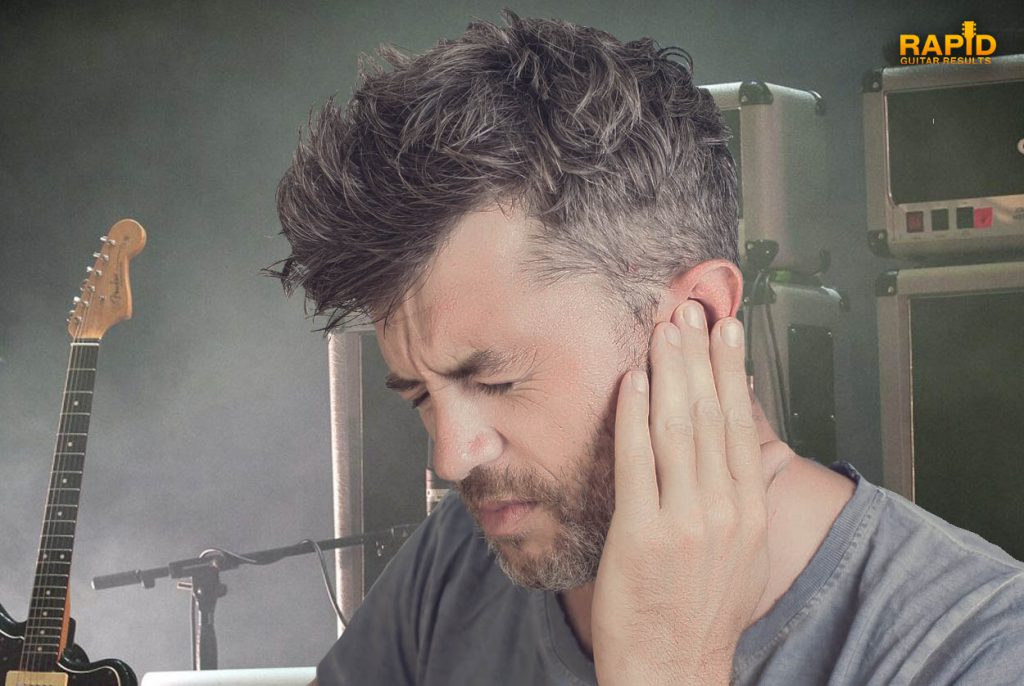Tinnitus is a common condition that affects millions of people around the world. It is characterised by a persistent ringing, buzzing, or humming sound in the ears, which can be distracting and even debilitating in some cases. For guitar players, tinnitus can have a significant impact on their ability to perform and enjoy their music. In this article, we will explore what tinnitus is, how it affects guitar players, and what steps you can take to protect your hearing.
What is tinnitus?
Tinnitus is a condition that causes a persistent ringing, buzzing, or humming sound in the ears. It can affect one or both ears and may be constant or intermittent. The severity of the symptoms can vary from person to person, with some people experiencing mild ringing while others are completely incapacitated by the noise.
Tinnitus can be caused by a variety of factors, including exposure to loud noise, age-related hearing loss, ear infections, and other underlying health conditions. It is important to note that tinnitus is not a disease but a symptom of an underlying condition.
How does tinnitus affect guitar players?
Guitar players are particularly vulnerable to tinnitus because of their exposure to loud music and noise. Guitarists make sounds that are treble heavy, which can be especially damaging to the ears. Repeated exposure to loud noise can cause damage to the delicate hair cells in the inner ear, which can lead to tinnitus and other forms of hearing loss.
For guitar players, tinnitus can have a significant impact on their ability to perform. The persistent ringing or buzzing can be distracting and make it difficult to hear oneself or others accurately. It can also make it challenging to distinguish between different notes and frequencies, which can impact the quality of the performance.
What can we do to protect our hearing?
As guitar players, it is crucial to take steps to protect our hearing and prevent tinnitus. Some tips for protecting your hearing include:
- Wear earplugs or noise-cancelling headphones when performing or rehearsing in loud environments.
- Take regular breaks to give your ears a rest and allow them to recover from exposure to loud noise.
- Avoid listening to music or other sounds at high volumes for extended periods of time.
- Get regular hearing tests to monitor your hearing and identify any potential problems early.
- Consider investing in custom-made earplugs that are specifically designed for musicians and guitar players. I’ve written about this in this post if you’d like to learn more.
In keeping with my “No BS” policy, I personally invested in two sets of custom-made attenuated earplugs. One of these sets has a 10 dB noise reduction, which I use while coaching. The second set has a 21 dB noise reduction, which I use at any event where my ears are going to be subjected to loud noises for sustained periods of time. This includes any event where extreme noise levels could potentially affect my hearing, such as concerts or motor racing events, etc.
Nowadays, earplugs similar to the ones I use are readily available online, like these ones from Eargasm. If you don’t have the time, energy or desire to get some earplugs custom-made (this can take up to four weeks, or possibly longer), then I highly recommend the Eargasm earplugs sold on Amazon. 21 dB noise reduction is ideal for concerts and other events with extreme noise levels.
Disclaimer: If you make a purchase from one of the above links, a tiny commission goes to supporting the site. In keeping with my “No BS” policy, I only ever recommend products that I personally use or know are beneficial to my readers.
Next steps
If you are a guitar player who has been impacted by tinnitus, it is important to seek help from a qualified professional.
Paule Enso at Rapid Guitar Results is a trained guitar coach who has experience working with musicians who have tinnitus. He can help you develop strategies to manage your symptoms and improve your performance. Contact Paule Enso at Rapid Guitar Results today to learn more.

